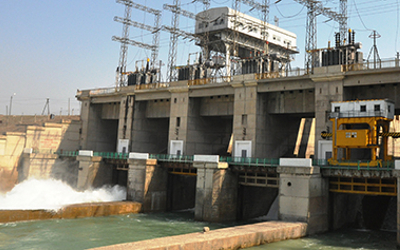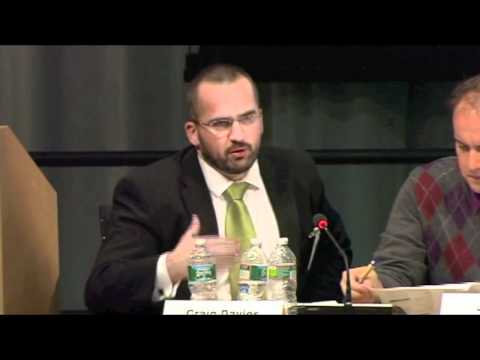AKIPRESS.COM -  Harnessing the potential of hydropower has, for decades, been behind the construction of hydroelectric power plants in the EBRD region. This was especially true in Central Asia where the annual thaw in the Pamir and Tian Shan mountains was the spur for major projects in Soviet times.
Harnessing the potential of hydropower has, for decades, been behind the construction of hydroelectric power plants in the EBRD region. This was especially true in Central Asia where the annual thaw in the Pamir and Tian Shan mountains was the spur for major projects in Soviet times.
Hydropower is also of crucial importance to Tajikistan’s economic well-being, the source of some 96 per cent of its electricity but also bringing with it vulnerability to climate risks such as glacial melting and variation in precipitation.
At the same time, thanks to Tajikistan’s wealth in water resources, prudent investment in hydropower holds out the promise of a viable, reliable source of clean energy to support economic development and living standards.
Built in 1957, the Qairokkum plant in the north of the country is the only generating facility for some 500,000 households in the Sugd region. Its six turbines have been lovingly maintained for nearly six decades by dedicated staff.
Nonetheless, after so many years, lack of investment and inevitable wear have taken their toll on its generating equipment and capacity, this in a region which experiences chronic electricity shortages in winter.
After careful study, the EBRD has committed itself to investing approximately US$ 75.7 million, which includes US$ 21 million in donor funds – a US$ 10 million loan and a US$ 11 million grant from the Pilot Programme for Climate Resilience.
A further US$ 4.7 million in technical cooperation grants has been provided by Austria and the United Kingdom and the EBRD’s Shareholder Special Fund.
“The financing structure required close cooperation with the donors and we are very grateful for their support in this critical project,” said Ramses Ruziev, the project’s Operation Leader. “We also developed a comprehensive reform programme together with IFI partners to support the much needed re-structuring of the power sector.”
The investment will cover the first phase of the plant’s modernisation – the Bank’s largest and most complex project to date in Tajikistan – and will involve rehabilitation of two of the plant’s six turbines, increasing capacity from 126MW to 142MW. Because the new equipment will be far more efficient, more electricity will be generated from the same water flow.
Enhanced efficiency and more modern equipment are just part of this project’s story. As Aida Sitdikova, Director for Energy and Natural Resources, put it: “Increased efficiency means increased capacity in an area of Tajikistan where interruptions of energy supply are endemic.
“Upgrading the plant will provide more energy using the same amount of water. Modern, safer equipment also means fewer wasteful water spills.”
Interruptions in energy supply have a knock-on effect on people’s lives. Without a reliable source of power, investment and business opportunities suffer.
Electrical outages across the country are estimated to cause total losses of some US$ 200 million and are perceived by businesses as the number one obstacle to private enterprise.
More important perhaps is the impact beyond that on the economy. People in rural areas who suffer from long interruptions in power turn to burning solid fuels like wood and coal for heat indoors, having a deleterious impact on health and the environment.
Tajikistan’s hydropower plants are dependent upon river basins fed by glacial and snow melt. With hydropower the predominant source of its electricity, the entire energy system is vulnerable to extreme weather events exacerbated by climate change.
So the development of the Qairokkum project included detailed climate change analysis and novel co-financing from the Pilot Programme for Climat e Resilience (PPCR) – the single largest climate change adaptation project in the EBRD’s history.
e Resilience (PPCR) – the single largest climate change adaptation project in the EBRD’s history.
“There is an overwhelming case to improve the climate resilience of the hydropower sector by investing in climate-resilient upgrades of hydropower facilities,” noted Craig Davies of the EBRD’s Energy Efficiency & Climate Change team.
There is another important dimension to this project: organizational and tariff reform. Barki Tojik (BT) is a 100 per cent state-owned enterprise with a monopoly on the generation, distribution and transmission of electrical energy in Tajikistan. Its financial and operational performance is weak due to shortcomings in organizational structure and corporate governance.
This EBRD project will help move the company to a more modern, transparent and accountable structure – a significant part of the EBRD’s transition objectives. It will require BT to establish an independent board of directors, adopt a code of corporate governance and strengthen its internal audit function.
It will also address the thorny issue of tariff reform. With tariffs not at cost-recovery level, there is little appetite for two vital elements of a viable power sector: private sector investment and energy savings.
The scope for hydropower in Tajikistan is enormous. The country has a total installed capacity of 5,157MW, the lion’s share of which is in hydropower. Yet only 57 per cent is currently available to produce electricity, indicating an urgent need for further modernisation and rehabilitation.
“This is just the first step down a long road lined with potential,” said Richard Jones, the EBRD’s Head of Office in Dushanbe. “Prudent, far-sighted further investment in hydropower and energy efficiency means a brighter future for Tajikistan.”
